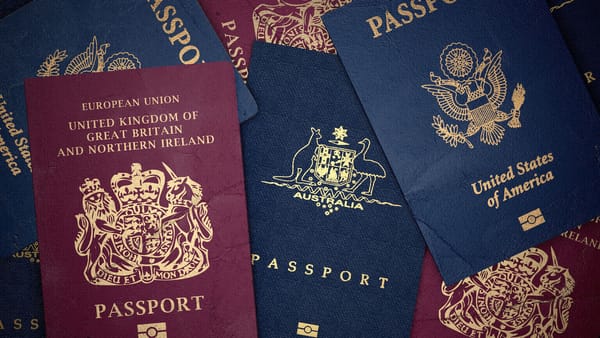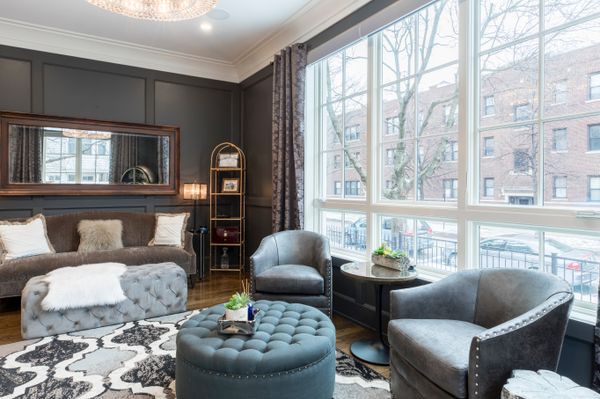Purchasing your own house has its charm and enthusiasm attached. An abode which you can call your own and which is your reflection. Also, it is one of the most significant financial decisions you will make, and you wouldn't want it to go the wrong way.
Buying a home abroad can be an exciting adventure, but it comes with unique challenges. If you're considering purchasing property outside the United States, here are the top three things you need to know.
And if you are a beginner who is taking baby steps towards buying that real estate property, the process may be a whole of complexities. There are multiple aspects to consider before you decide on that dream house of yours: location, funds, style, neighborhood, and, of course, its resale value.
To help such home seekers, real estate experts have come up with seven prominent points to remember while buying your own house. These points are beneficial in finding the right house, whether you are seeking a house in the US or abroad.
Guide To 7 Things Every Homebuyer Should Know When Purchasing an International Home
Let us walk through these relevant 5 points to keep in mind while you start searching for and buying your own house.
Be Flexible About Location
Many homebuyers, especially first-time buyers, tend to get adamant about the location of their house. Though it is a good thing to consider your location while listing out your locations, getting flexible with those pin codes does not pose a problem.
Foremost, have your needs, budget, and priorities clear, and start looking with an open mind. It is a good start to think of a real estate location in a posh colony, but if the budget is not allowing, it is advisable to look beyond your selected cities and expand your location circle.
Understanding the current trends in the housing market is crucial. For instance, if you're considering Eastern Europe or real estate in Limassol, research the local market conditions, average home prices, and the future growth potential of the area.
Understand the Local Real Estate Laws and Regulations
Different countries have different rules when it comes to foreign property ownership. Some nations welcome it with open arms, offering easy paths to ownership. Others have restrictions or even prohibitions. For instance, in some countries, foreigners can't own land outright but can buy condominium units or lease property.
Before you fall in love with a property, make sure you're legally allowed to buy it. It's essential to conduct thorough research or consult with a local real estate attorney who can guide you through the legal intricacies of buying property in that country.
Research the Local Market and Culture
Understanding the local real estate market is crucial. Is the market stable or volatile? Are property values expected to rise or fall? These factors can influence your decision to buy and the type of property you should consider.
Cultural understanding is also key. The lifestyle and norms in your chosen location might be vastly different from what you're used to in the United States. Researching and respecting local customs and practices will help you integrate better into your new community and ensure a smoother transition.
In conclusion, buying a home outside the United States can be a fulfilling venture, but it requires careful planning and consideration. By understanding the legal landscape, being financially prepared for all costs, and integrating yourself into the local culture and market, you can make your overseas property dream a reality.
Be Cautious About Houses Being Sold 'By Owners' Directly
When you are seeking a house for yourself, it is advisable to avoid getting lured by owners selling the home on their own. This implies that there is no agent or broker in between the deal, and the owner is selling it on their own.
Now, this may lead to legal hassles as there is no representative from either side who knows the process. Also, the owners may sell the house at an overpriced rate as they may need to be aware of the market.
Look For a Good Broker
Talking of representatives, it is always advisable to get an honest broker or a realtor to represent your search. A qualified realtor or broker is of immense use in this case as they can help you save money and get a good house of choice within your budget.
For example, a reliable realtor has all the knowledge of where to save money on house deals or where to buy good short-selling houses.
Plan Your Budget For Transitional Costs
Imagine a case where you are living in a rented house and are looking for a new house at the same time. Most home seekers plan to go for paying rent every month while looking for a house.
Now, this can pose a problem as you may have to pay the new mortgage amount and the rent amount as well. This can cause an extra burden for the home seekers, and thus, experts often advise keeping some savings to cover these additional costs.
The cost of buying a home abroad goes beyond the sticker price. You'll need to consider additional expenses such as local taxes, legal fees, property registration fees, and possibly even currency exchange rates. These can significantly affect your budget.
Moreover, don't forget about ongoing costs after purchase, like maintenance, utilities, and local property taxes. It's advisable to make a comprehensive budget so you're prepared for all expenses, both immediate and long-term.
Research The House's Resale Potential
When seeking a house, it is always recommended to go for a house that has a good resale value. Though you are buying a house to stay there forever, life always has some surprises up its sleeves. Thus, it would help if you were prepared for all kinds of situations.
Thus, if you have to sell your house for any reason, it should give you a price higher than what you paid initially. Also, it is advisable to consult a good broker to help you get such a house with high resale value.
Final Words
Buying a house, either locally or internationally can become a daunting affair if you are not cautious. Lack of experience can majorly hamper your buying capacity, and thus, it is recommended to get advice from the pros. Happy home buying!






